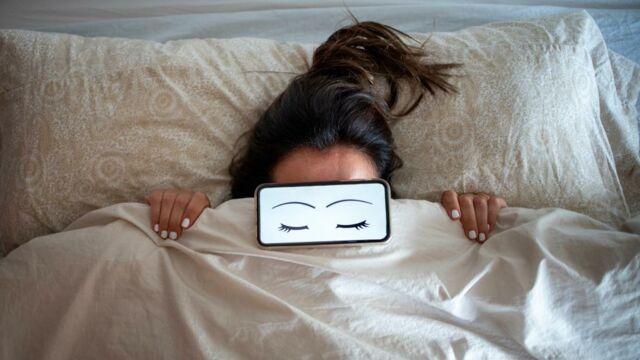A recent study conducted by the University of Boulder Colorado and the Broad Institute of MIT and Harvard has found that waking up an hour earlier could help reduce depression by 23%.
Discover our latest podcast
The study, which was recently published in JAMA Psychiatry, analysed 840,000 people and represented some of the most substantial evidence that a person’s chronotype - or biological clock - can influence the risk of developing depression. It is also one of the first studies to show the small changes that can be made to affect one’s mental health.
Night owls are twice as likely to suffer from depression
Previous studies have shown that those who tend to stay up later are twice as likely to suffer from depression than those who prefer to get an early night. However, because mental health and environment can also affect a person’s sleeping patterns, conclusions on the subject have been hard to find - until now. Senior author Celine Vetter, assistant professor of integrative physiology at CU Boulder, revealed:
We have known for some time that there is a relationship between sleep timing and mood, but a question we often hear from clinicians is: How much earlier do we need to shift people to see a benefit? We found that even one-hour earlier sleep timing is associated with significantly lower risk of depression.
Vetter also conducted another large scale study back in 2018, analysing the sleeping patterns of 32,000 nurses over four years. Results showed that ‘early risers’ were 27% less likely to have depression.
In the most recent study, researchers gathered the data on 850,000 individuals, 85,000 of which had used a wearable sleep tracker for a total of seven days, and a further 250,000 had also filled out sleep-preference questionnaires. This gave researchers a broader idea of how variants in genetics affect one’s sleeping patterns.
Results showed that over a third of participants self-identified as ‘morning people’, 9% were night owls, and the rest fell in the middle. Overall the average midpoint of sleep was 3am, meaning that participants went to bed around 11pm and rose at 6am.
Researchers also looked at participant’s genetics and anonymised data on medical records and histories of major depressive disorder and found that those who had genetics that caused ‘early rising’ behaviours also had lower levels of depression. Additionally, sleep mid-points that were each one hour earlier also corresponded with a 23% lower risk of major depressive disorder.
If you needed a sign to hit the hay a little earlier, this is it.
Why does waking up early reduce the chances of depression?
Some research suggests that waking up earlier exposes people to more sunlight during the day. This exposure to light can influence hormones and mood changes.
Other evidence also points out that having a naturally later biological clock can be depressing in itself as society is designed for day-doers. Lead author Iyas Daghlas of Harvard Medical School explained:
We live in a society that is designed for morning people, and evening people often feel as if they are in a constant state of misalignment with that societal clock.
If you’re thinking of re-adjusting your schedule, Vetter has some wholesome advice:
Keep your days bright and your nights dark. Have your morning coffee on the porch. Walk or ride your bike to work if you can, and dim those electronics in the evening.















